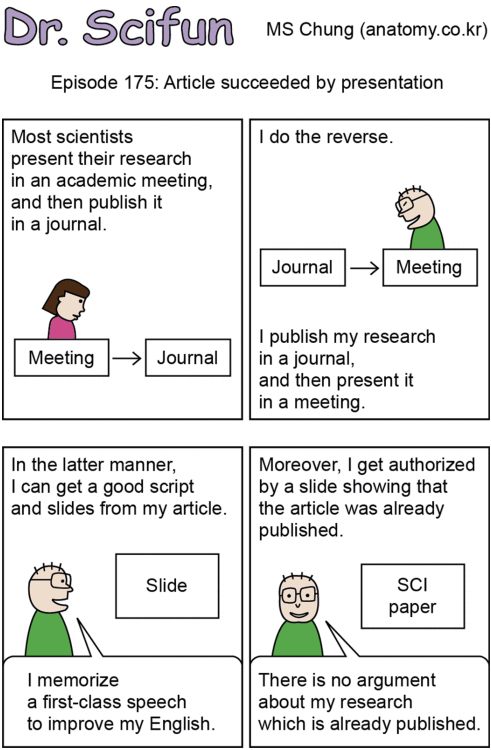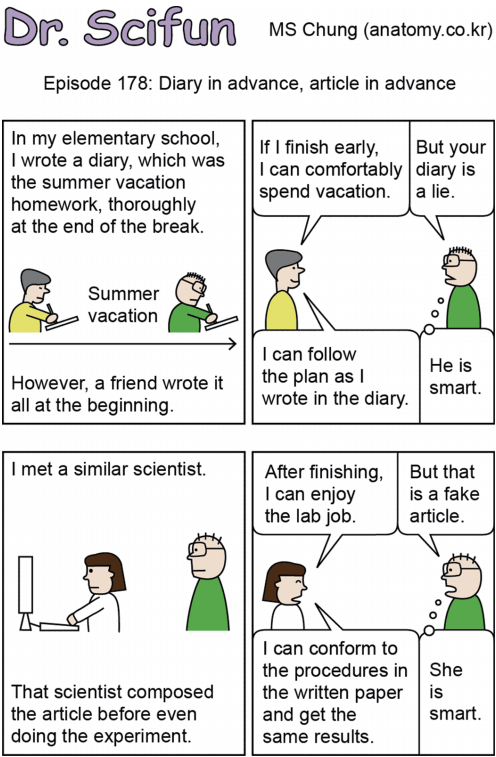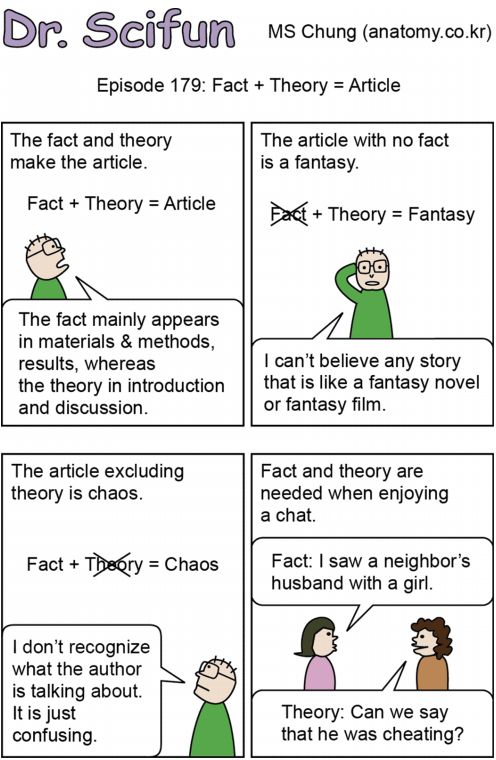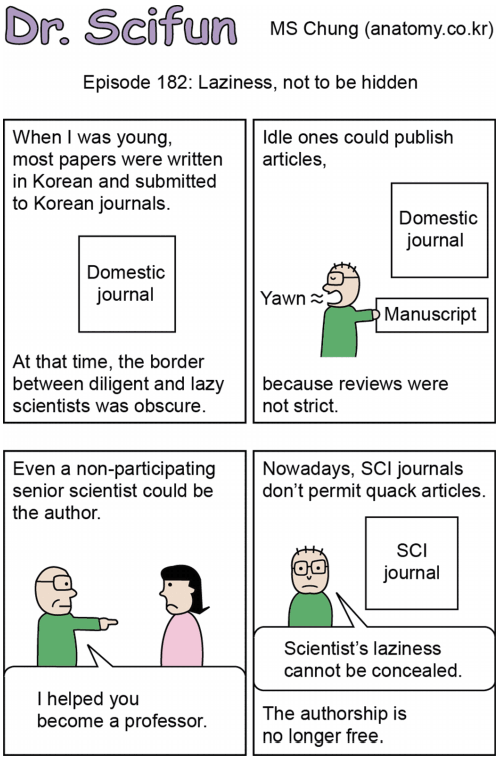Articles
- Page Path
- HOME > Sci Ed > Volume 4(1); 2017 > Article
-
Science Cartoon
Article succeeded by presentation -
Beom Sun Chung1
 , Jeong Houn Son2,3
, Jeong Houn Son2,3 , Min Suk Chung1
, Min Suk Chung1
-
Science Editing 2017;4(1):48-51.
DOI: https://doi.org/10.6087/kcse.92
Published online: February 20, 2017
1Department of Anatomy, Ajou University School of Medicine, Suwon, Korea
2Department of French, Ajou University, Suwon, Korea
3Department of Cultural Contents, Ajou University, Suwon, Korea
- Correspondence to Min Suk Chung dissect@ajou.ac.kr
• Received: October 17, 2016 • Accepted: January 31, 2017
Copyright © Min Suk Chung
This is an open access article distributed under the terms of the Creative Commons Attribution Non-Commercial License (http://creativecommons.org/licenses/by-nc/4.0/), which permits unrestricted use, distribution, and reproduction in any medium, provided the original work is properly cited.
- 8,379 Views
- 144 Download





-
Acknowledgements
- This work was supported by the National Research Foundation of Korea (NRF) grant funded by the Korea Government (MSIP) (no. 2015R1A5A7037630).
Figure & Data
References
Citations
Citations to this article as recorded by 


 KCSE
KCSE
 PubReader
PubReader ePub Link
ePub Link Cite
Cite

